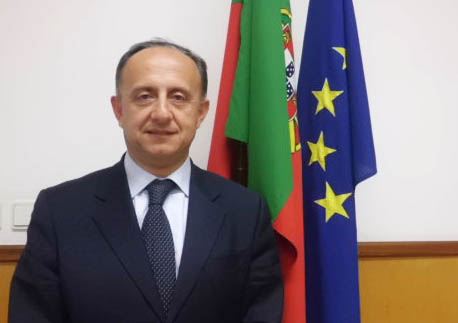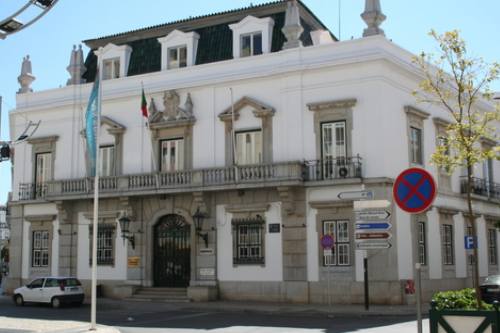 The next Community Support Framework will involve "a lot of support for people" and companies, "to the detriment of the construction of works". The chairman of the Algarve's Regional Coordination and Development Commission (CCDR) David Santos raised the bar on how Community Funds will be used in the Algarve between 2014 and 2020, but preferred to leave the announcement of concrete measures until after the Regional Council meeting, which will take place on February 17th and will be attended by Minister Poiares Maduro.
The next Community Support Framework will involve "a lot of support for people" and companies, "to the detriment of the construction of works". The chairman of the Algarve's Regional Coordination and Development Commission (CCDR) David Santos raised the bar on how Community Funds will be used in the Algarve between 2014 and 2020, but preferred to leave the announcement of concrete measures until after the Regional Council meeting, which will take place on February 17th and will be attended by Minister Poiares Maduro.
In an interview with Sul Informação, David Santos revealed which areas will be a priority to invest the more than 318,7 million euros destined for the Operational Plan of the Algarve. This figure represents an increase of more than 82 percent compared to the amount that the same OP managed between 2007 and 2013.
In the Community Support Framework (QCA) 2014/20, the Algarve is once again benefiting from funds from the FEDER programme, but it is now also fetching money from the European Social Fund (ESF), something that has not happened in the recent period. In this way, “about 95 million euros reach the region, with the rest coming through the ERDF”.
“In fact, we have an amount that will be managed by CCDRA, which will almost reach 319 million euros. There is only a slice of 4 million euros here that were withdrawn from the next CSF for the Youth Employment Initiative, but with a combined initial contribution that this amount would be doubled and there will be 8 million that can only be used in the Algarve, under this initiative,” said David Santos. In practice, this brings the investment “to close to €323 million”.
 «The fundamental differences have to do with the great investment in the transfer of knowledge to companies and the companies themselves. In the next Community Support Framework, we will have to allocate at least 60 percent of the funds coming from the ERDF in these areas», he announced.
«The fundamental differences have to do with the great investment in the transfer of knowledge to companies and the companies themselves. In the next Community Support Framework, we will have to allocate at least 60 percent of the funds coming from the ERDF in these areas», he announced.
As far as the European Social Fund is concerned, "there will be a strong commitment to inclusion, employment and human capital, which is where this fund focuses". “The ESF has a lot of money to invest in training, namely in the work environment, in young people, in gender equality…there will be substantial support in these areas”, he assured.
In the opposite field, that of “negative eligibility”, that is, areas where investment is practically barred, are “applications that have to do with roads and the like”. That “paradigm that previously existed that Community Funds had to do with this type of work” no longer exists. «Now, almost everything that has to do with the management of urban space will have negative eligibility», warned David Santos.
The exception will be “some schools and some urban regeneration, which will also be eligible, primarily in disadvantaged areas, both in social and in terms of heritage”. "There is also a bet on the regeneration of Cultural Heritage," he added.
David Santos did not want to elaborate on what measures will be opened and how citizens, companies and public entities will be able to access these community funds, information he leaves for the Regional Council next week, where a “state of the situation of the current CSF and also the programming of the Framework 2014 to 2020».
"We are going to announce some concrete actions that we want to include in this Operational Program, referring to the constraints that we have, on the one hand, for being a Transition Region and, on the other, of the envelope [of funds]," he said.
Algarve positively discriminated
 The Algarve will be the second region in the country where the allocation of Community Funds increases the most, in percentage terms, in the new Community Support Framework, compared to what is now coming to an end.
The Algarve will be the second region in the country where the allocation of Community Funds increases the most, in percentage terms, in the new Community Support Framework, compared to what is now coming to an end.
At the top of this list is Lisbon, which sees community support more than double in 2014/20, compared to 2007/13 (an increase of around 170 percent, to 833 million euros).
The region that encompasses the capital of Portugal is, like the Algarve, in a process of phasing out, now Transition Region, a crossing point from the poorest areas of the European Union (Convergence Objective) to the wealthier (Competitiveness Objective). The transition was supposed to end now, but due to the crisis, Lisbon and the Algarve were given a second chance to catch up with the richest, by 2020.
«Lisbon had more funds, essentially, for two reasons: first, because of the method of calculating the Funds in this table and, second, because, when the envelope for Portugal was approved, another billion euros were put on the table , 300 million of which went directly to Lisbon, while 75 million came to the Algarve», explained David Santos.
The president of the CCDR of the Algarve does not consider, even so, that the region is being harmed. “I would like to mention that the only region where a mechanism that the European Union has been activated, which allows it to get funds from other regions to transmit it to transition regions, was the Algarve”, he stressed. This "positive discrimination" allowed the Algarve to fetch "another 68 million".


















Comments